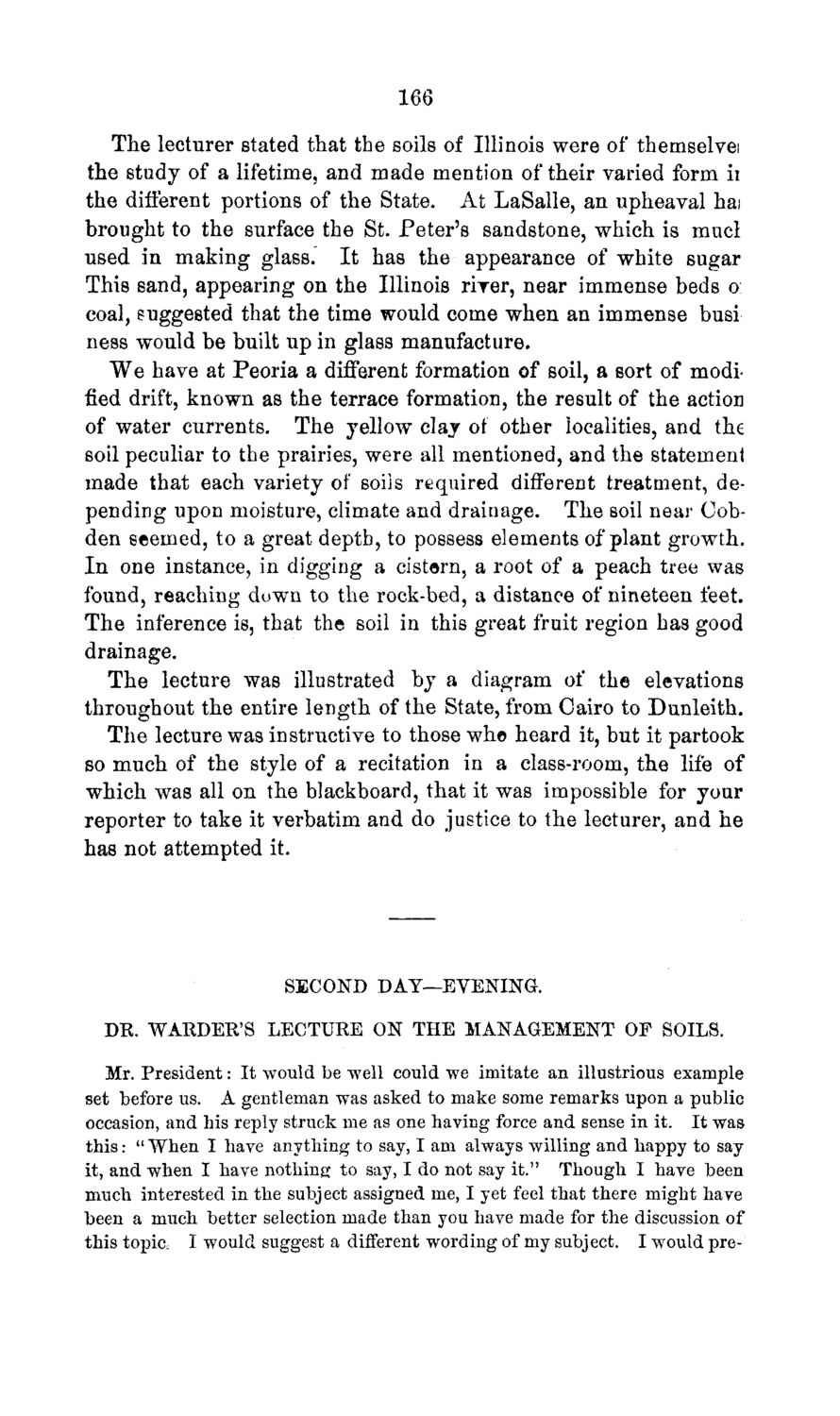| |
| |
Caption: Board of Trustees Minutes - 1869
This is a reduced-resolution page image for fast online browsing.

EXTRACTED TEXT FROM PAGE:
166 The lecturer stated that the soils of Illinois were of thernselvei the study of a lifetime, and made mention of their varied form ii the different portions of the State. At LaSalle, an upheaval hai brought to the surface the St. Peter's sandstone, which is mucl used in making glass. It has the appearance of white sugar This sand, appearing on the Illinois river, near immense beds o coal, suggested that the time would come when an immense busi ness would be built up in glass manufacture. We have at Peoria a different formation of soil, a sort of modified drift, known as the terrace formation, the result of the actioD of water currents. The yellow clay of other localities, and the soil peculiar to the prairies, were all mentioned, and the statement made that each variety of soils required different treatment, depending upon moisture, climate and drainage. The soil near Cobden seemed, to a great depth, to possess elements of plant growth. In one instance, in digging a cistern, a root of a peach tree was found, reaching down to the rock-bed, a distance of nineteen feet. The inference is, that the soil in this great fruit region has good drainage. The lecture was illustrated by a diagram of the elevations throughout the entire length of the State, from Cairo to Dunleith. The lecture was instructive to those wh© heard it, but it partook so much of the style of a recitation in a class-room, the life of which was all on the blackboard, that it was impossible for your reporter to take it verbatim and do justice to the lecturer, and he has not attempted it. SECOND DAY—EVENING. DR. WARDER'S LECTURE ON THE MANAGEMENT OF SOILS. Mr. President: It would be well could we imitate an illustrious example set before us. A gentleman was asked to make some remarks upon a public occasion, and his reply struck me as one having force and sense in it. It was this: " When I have anything to say, I am always willing and happy to say it, and when I have nothing to say, I do not say it." Though I have been much interested in the subject assigned me, I yet feel that there might have been a much better selection made than you have made for the discussion of this topic, I would suggest a different wording of my subject. I would pre-
| |